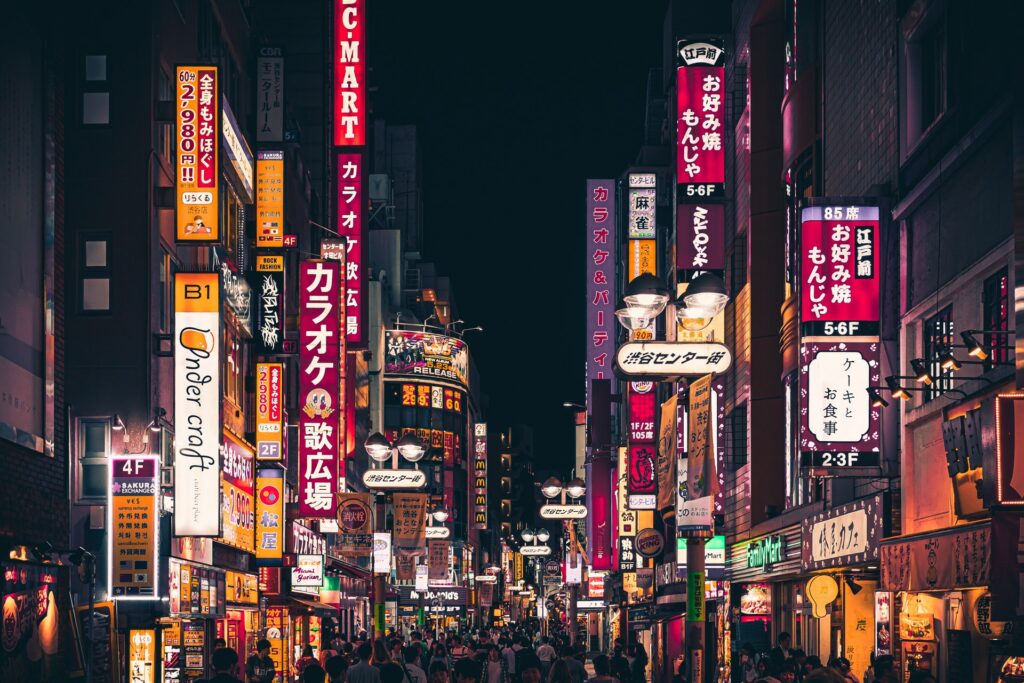Languages are often an amalgamation and evolution of numerous other historical and regional languages; English for example, is mostly derived from Latin, with French and Norse influences. However, trying to decipher the origin and etymology of a specific word has become almost impossible. Yet in the modern day we can witness the change of a language first-hand as words from other languages are directly introduced — with its origin quickly forgotten. Common Japanese words are included in this scenario.
With Japan’s re-opening to the world in the late 19th century and growing popularity in the 20th century, many Japanese words became introduced to the world. Into the present day, many of these words have already integrated into everyday speech with little idea of their origin.
Today I want to highlight 10 words that are commonly used but are unknowingly Japanese. To keep this as surprising as possible I won’t be including words that are brand names such as Mazda or Suzuki or more obvious words such as Sushi or Kimono.
Let’s begin.
1. Emoji

First up we have emoji, a word that has Rocketed in usage in an extremely short amount of time and is used millions of times everyday. Emoji are the pictograms or symbols that are used in messages to convey emotion, meaning, or just for fun.
It originates in Japan beginning from the late 90’s when the country was renowned for its mobile phone innovation. The first emoji was used in Japan in 1997 but its usage in the rest of the world only really caught on when Apple implemented the emoji keyboard for everyone in 2010.
The emoji themselves were first created by Shigetaka Kurita and were based on the expressions and reactions found in Japanese Manga.
2. Tsunami

A tsunami is a type of large wave caused by disruptions beneath the surface of the water and are usually catastrophic to nearby populations.
The word Tsunami is just the Japanese way to describe this phenomenon but there have been several terms to describe it such as tidal wave and seismic sea wave. Interestingly, both of the latter were found to be inaccurate terms, as water displacement in these scenarios have nothing to do with tides and many more causes than seismic activity.
Hence Tsunami became the most used Japanese word for the scenario and has become common in everyday speech.
3. Ginkgo

Most often used as a health supplement and sometimes for cooking; you may be surprised to learn that Ginkgo too is a Japanese word.
Ginkgo Biloba (full scientific name) is a tree native to China but was introduced into Japan by the 14th century. Despite its origins being non-Japanese, the Japanese word Ginkgo became used due to its first contact with a western botanist by the name of Engelbert Kaempfer who was visiting Japan.
The Japanese word for this newly discovered tree was recorded and brought back where it was integrated into the language. However, in Japan the plant is known as Ginkyo; it turns out that Engelbert made a slight mistake when transcribing the kanji into English.
4. Sayonara

Here we have the first Japanese word that is perhaps unknowingly common, purely due to pronunciation.
Sayonara is a word that means ‘goodbye’ in its most simple sense but with a long-lasting emphasis. The problem is, it’s often pronounced as Sai-o-nar-ra which is quite different from the Japanese pronunciation of Sa-yo-na-ra. It’s perhaps not used as much as some other words on this list, but is often used as a throw-away or casual way of saying goodbye — without knowing where it’s from.
5. Tycoon

Here is a word that even I wasn’t really aware of until recently. In English, Tycoon refers to a powerful businessman perhaps with multiple enterprises across numerous industries.
A Japanese Tycoon or Taikun is an archaic term that refers to a shogun or liege. In this sense the meanings are somewhat similar. A shogun was an incredibly powerful person in Japan with control over vast amounts of land and influence; in modern day uses the same can still be said if applied to a business sense.
6. Satsuma

If you are thinking of Japanese food, a small orange fruit is probably not at the forefront of your mind. A Satsuma however, is exactly that.
For many people a Satsuma is just another variation of an orange in a similar vein to tangerines and clementines etc, yet a Satsuma is specifically an easy-peel orange coloured fruit that originated from Japan’s Satsuma province (now part of Kagoshima prefecture).
With Satsuma province no longer existing as well as the interchangeable way the types of oranges are used in conversation, there are those that may not realise the Satsuma is Japanese.
7. Karaoke

The word and action of Karaoke has become commonplace for many of us, as such its a perfect candidate for being a forgotten Japanese word.
In case you’re unsure, Karaoke is the art of singing with the aid of a backing track or recorded music. This is usually done publicly in the west or in smaller booths in Japan and is missing the lead vocals.
Karaoke was hugely popular in Japan even before the development of the first official Karaoke machine that many of us love — or despise — in the 1970’s, and caught on overseas during the late 80’s and early 90’s. Although the popularity in many countries has fallen dramatically, In japan it remains as popular as ever.
8. Sudoku

The usage of the word and the story of Sudoku is a little peculiar. The origin of the puzzle itself can be seen in early Swiss and French ideas; the first modern Sudoku was designed by Howard Garns, an American puzzle constructor then named ‘number place’.
But here we’re talking about the words.
Japan caught on to this new puzzle and there it was known as ‘Sūji wa dokushin ni kagiru’ but quickly shortened to Sugoku. After attracting the attention of a man named Wayne Gould in a bookshop in Japan he proceeded to pitch its inclusion in the British newspaper ‘The Times’ where it began to proliferate across the world hereafter.
9. Futon

A Futon, as many people will know, is a type of bed. It consists of a mattress on wooden slats or incorporated into folding chairs and sofas — except that it isn’t.
In western countries this is certainly the case; yet, little do some know, a futon is a Japanese term for something quite different. In Japan, a futon is still a type of bedding but consists of a set including a lightweight mattress and duvet. Unlike western versions, it is placed directly on the floor when in use and able to be compactly folded and stored when not.
10. Haiku
Everything I touch
With Tenderness, alas,
Pricks like a bramble.
Kobayashi Issa
The word is similar to satsuma in the sense it is often seen as just a variation of an already common thing, in this case a poem. The truth is, this is very much a Japanese word.
A Haiku is a unique poem that contains a distinctive 5 – 7 – 5 syllable pattern across three lines. They are poems that are typically not rhyming in nature, and traditionally contain key one or two keywords that are strategically placed to provide emphasis, definition, and context.
However, there are some variations between an English and Japanese Haiku. In English the 5 – 7 – 5 rule applies to syllables where in Japanese it applies to the Japanese phonetic sounds; this means Japanese Haiku will appear to be shorter.
Conclusion
These are ten of the most common Japanese words that many people may not realise are in fact Japanese. Even when there are other words in English or another language that can be used to describe a specific action or object — such is the case with Tsunami and Sudoku for example — the Japanese equivalent is used. There is a succinctness to them that, once learnt, is easily understood.
Nathan

